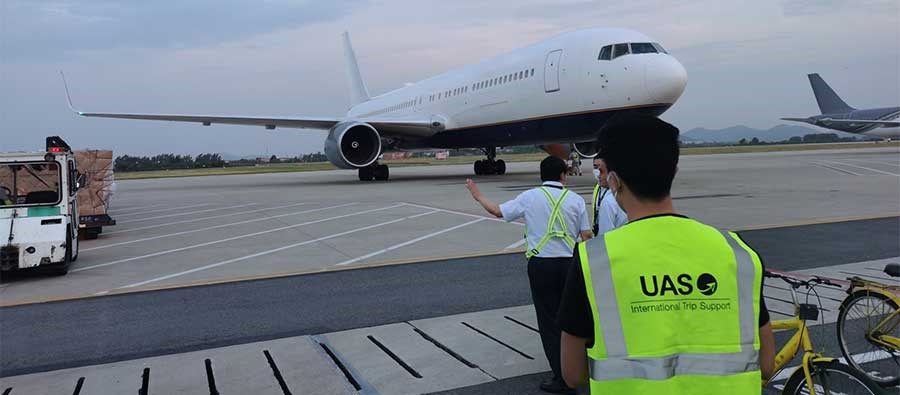Critical Planning, Part I: Planning is everything, but knowing what should be planned, reviewed and considered when putting together a schedule for a flight operation is equally important. Aviation requirements change globally but there are a number of standards that can be included in the planning and feasibility checks which apply to just about all categories of flight operation.
Airport Selection
Airport selection is important for many reasons, some are obvious but there are several considerations that are not so obvious. They include: operating hours, noise abatement procedures and curfews, navigation equipment (in relation to the aircraft) for published approaches and departures, prior permissions required PPR, adequate fire coverage/category, runway direction length and slope, pavement strengths, parking space availability and the prices related to all of these and more. Airports are generally selected on the basis of operational suitability in terms of handling-related services, but what if a maintenance related issue occurs? Is there an MRO or similar maintenance support provider at the airport approved to carry out maintenance and countersign the tech log? Will something as simple as a wheel change or hydraulic leak potentially delay your aircraft indefinitely? – These are important questions to be explored when choosing the best airport for your needs.
Handling Agent
Are their staff trained to look after your aircraft type? Have they the correct equipment? Will the steps reach the passenger door? If the purpose of the flight is to drop off or collect cargo, does the agent have the right equipment? (Pallet dollies 10 foot / 20 foot, Main Deck Loader, tail strut, etc.) Finally, when all of the big questions of concern are answered in relation to handling, are you satisfied you’re getting a fair deal financially?
Fuel Planning
It’s vital to know the conditions for optimum performance of your aircraft and to correctly apply these to a computer flight plan for dispatch purposes. Agree as much as possible in advance with the pilot in command on all fuel-related decisions in order to reduce the chances of wholesale changes to the fuel uplift requirements on the day of flight. Also, develop some policies on fuel tankering. For instance, when does tankering actually save you money? Or, is a fuel tankering decision taken to save time only on a technical landing when duty time limitations are a factor? Will the tankering of fuel affect take-off performance, breaking distance or limit payload allowances? When is a reclear flight plan a viable option? Are these decisions in line with your Ops Manual? Fuel the aircraft the day before the flight to reduce the risk of delivery delays and the negative impact on the schedule this can cause.
Route Planning
When it comes to optimum route planning, there are many questions to consider. Is the aircraft equipped for RVSM, MNPS, FANS airspace? Is the aircraft 8.33 radio equipped if operating in Europe? If the plane is twin engine is ETOPS a factor, are terrain avoidance and engine out drift down analysis required? Is the route of the flight over-flying countries that are politically unstable? Are there poor relations between the country being over-flown and the country of aircraft registry? Is the aircraft insured for the territories it will transit? Has the ATC route been validated as acceptable to all ATC centres and FIR’s on route?
International Ops
Over-flight permit requests generally require significant prior notice. Time frames can vary between countries but allowing at least two full working days prior notice is good practice. Landing permits usually take two or three working days to process and approve. In both cases, many CAA’s request additional documentation for the aircraft. At a minimum, expect that they will review the aircraft’s airworthiness, registration and insurance certificates. Landing permits may also require a review of an operator’s AOC to confirm the flight category. Some authorities also routinely request copies of pilot licences, training and medical records, the meeting party, local sponsor details and consignee/consignor details.
Domestic Ops
Many countries (including China, Taiwan, Indonesia, India and several European countries like Germany and France) are very sensitive in approving domestic operations for foreign registered aircraft, especially those operating under a commercial category. They are often seen as contravening cabotage rules in relation to the definitions of the ICAO issued 8th and 9th Freedoms of the Air. Even fuel stops or technical landings, layovers for legal and safety-related crew duty rest periods can be met with strong resistance.
Need some assistance with your critical planning needs? Contact dxb@uas.aero





